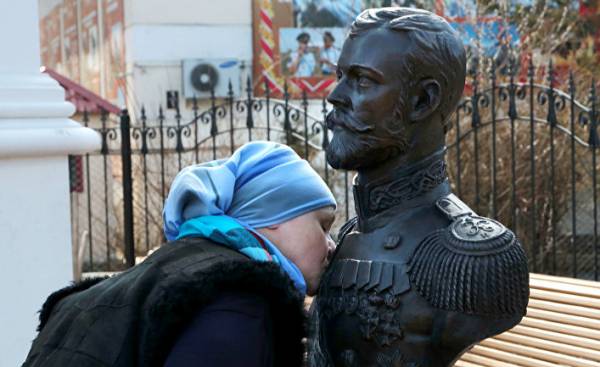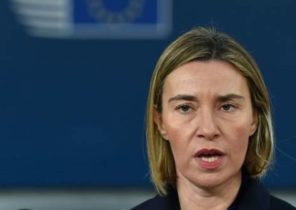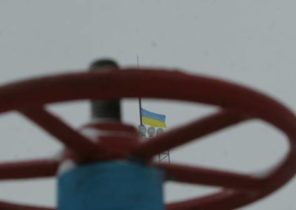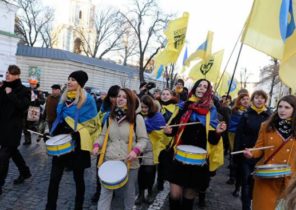
The centenary of the February revolution and the abdication of Emperor Nicholas II in Russia began to remember the king and nostalgia for the monarchy. Not long ago, the illegitimate state Duma Deputy Natalia Poklonskaya said that in the Crimea zamirotochila the bust of the last Russian monarch, which, however, the Commission of the Russian Orthodox Church is not confirmed. The famous Russian historian and religious scholar Andrei Zubov insists such thoughts have nothing to do with the state policy of the Russian Federation. Moreover, rethinking the Russians of their past, namely the period before the collapse of the Empire, the trend is positive.
Revolution under a magnifying glass
Why is now so actively raised the topic of the 1917? As it is now not been evaluated by the revolution (I appreciate it as a tragedy), this event changed the face of the world, not just Russia. It is definitely a fact. After the Russian revolution changed the attitude of the workers, to the lower layers of the elite of the European countries began to realize that needs to build a welfare state that doesn’t allow one group to live at the expense of others. After the revolution, there has been a change of consciousness, which certainly is a positive factor.
On the other hand, after the revolution in Russia is a radical anti-Communist movements such as fascism and Nazism, which eventually led to a clash with communism during the Second world war. It is also a consequence of the revolution. After all, if it wasn’t for her, there would be no fascism in Italy or Nazism in Germany. Was formed a brand new state — atheistic totalitarian state as was the Soviet Union that killed millions of its own citizens. This is a terrible phenomenon, which is a fact of history. This state has spread after the Second world war a third of the terrestrial globe, changing the lives of many peoples: Central Europe, China, and Vietnam, and North Korea, and Cuba, and some African countries.
That is why the revolution of 1917 is now under a magnifying glass it day by day scientists are studying, a lot of people watching the sites, which publishes diaries, letters, documents of the revolution. This happens not because Russia is so greatly revered the revolution, but because it was the most important event which is interesting for the fate of individual people. The ancestors of the Russians, their grandfathers and great-grandfathers were participants of these events. As mine, by the way, grandparents. In my personal archive letter from my grandfather to my grandmother from St. Petersburg from February — April 1917.
A century of revolution becomes a fact that is changing the way of thinking. The Soviet way of revolution, remained in the minds of our society and has positioned it as a good thing, going fast. Replaced by a different way: revolution is a great mystery, as in a few days was able to collapse a huge state with a huge army, the police, by the time it is successful both economically and militarily. We came to a psychological breakdown: how could this happen, why the citizens of Russia so joyfully embraced death of his own country? This is the main question that people ask. So phrased the question makes participants in the events not the heroes and culprits. This is a serious process that speaks about growing Russian companies.
To restore the monarchy
Consistently, the percentage of people who support the restoration of the Romanov dynasty — approximately 8-10%. About the same in Poland supported the restoration of Royal power. This is a fairly large but marginalized group.
And here it should be understood that the monarchy is rule by one person, undivided, and if you translate this Greek word. And Russia is now one ruler, and everyone knows who he is. Russia, Belarus, Uzbekistan, Kazakhstan, Azerbaijan — it’s the monarchy. They are only called “Republic” and “presidential power”, because it’s fashionable. In fact it is a monarchy. In Azerbaijan, the monarchy became hereditary, in Kazakhstan, too, in some form, it is a hereditary transfer of power. In this sense, we are talking about the monarchy, not the Republic and democracy. After all, it’s not the word, what is written in the Constitution, and what really exists in the country.
England — formally a monarchy, and Denmark too. But there is democracy, the country is ruled by the people, and the higher the symbolic role, for example, in Germany performs the elected Parliament, the President, then the monarch takes the highest position, which inherited a monarchical system from one generation to another. This is a good tradition. It is no coincidence that in Spain after Franco restored the monarchy, which served the country’s European integration, and the strengthening of democracy. So that in itself is a monarchy combined with democracy, is a normal thing, and it is where a lot (not only in Europe but also in Japan and Thailand, for example) is justified.
But if under the monarchy we understand the institutionalization of the dictatorship, as it was in Russia before the Manifesto of 17 October 1905, then it’s bad, it’s a completely outdated form. Now our countries are literate, educated society, we have many media, computer network, people can easily manage their country and at the national and local level government. In this situation, to maintain or restore absolute monarchy — absolute idiocy.
Some people support a monarchy, as the unfortunate Aksenov, who said that Putin should be an absolute monarch. What is the Aksenov — and these are his statements.
And people who say that Russia could be a constitutional monarchy of the European type, as in the UK or in Denmark, is reasonable. In this respect, the restoration of the Romanov dynasty with the symbolic functions would be a good way in the current situation, and to preserve the personalism of the Supreme power and however, to ensure the freedom of real power from the person of the ruler. The real power would have a Parliament chosen by the people, and the symbolic authority would have the monarch of the historic dynasty. By the way, the same option would be bad for countries like Romania or Bulgaria. For example, in Romania, still alive the last king Michael. He is very old, but still alive, respectively, it is easy to restore the Royal power of the British type.
To start again
In Russia, many people are seriously studying Russian life before the revolution, the last period — the beginning of XX century. And now it is clear that analogies with the current regime there can be no. The tsarist regime was not corrupt, corruption then was reduced to almost zero. Yes, of course, there were excesses, as now in Italy or France, but it was not a system in our countries. In old Russia was very easily achieved a victory over corruption — not quick, but easy. Because there were two independent systems of power — local self-government, which was elected by the people, and the state administration, which was appointed by the Emperor. Each watched the other. Each County had a County Council and were officials of the Ministry of internal Affairs. Officials are very jealous attitude to the Zemstvos and saw to it that they did not steal. A Zemstvo very jealous to the officials concerned. And corruption as a mass phenomenon was not isolated cases.
The second point: the regime was not rotten, it is the Soviet term. On the contrary, Russia has developed very quickly. If now Russia is in stagnation and lives at the expense of natural resources, then everything was different, the main items of export from Russia was agricultural products — products in which invested human labour: grain, oil, cloth. In addition to the light industry in Russia has developed very quickly and heavy. Russia was one of the most developed countries of the world. Although a man had much less income than in Europe, but it grew. The growth rate of GNP of Russia is only rivaled with the US, then behind, then ahead of them, and much for this indicator, ahead of Europe.
Russia was not a breach in the world order, as it was trying to show the Bolsheviks and until now, according to tradition, many think.
After 1905 in Russia was the state Duma, and no law or budget could not be adopted without the approval of the majority of the Duma. Then the elections are not falsified, the Duma was presented a whole palette of political parties, from extreme left to extreme right. Nothing like that in the current Duma in Moscow, there is only party, which presents Putin. Was and a free press, Newspapers for the most part was an opposition and free, and there was no manipulation of the citizens, as they are now doing Putin’s propaganda.
So it was a country going in the right direction and going very fast. Perhaps it is because of this speed and she died because psychologically adapting to changes could not happen. People lived yesterday, as it happens in cases of very rapid socio-economic development. But in any case is not comparable with the current Russian or the Soviet state.
Now there is a new thinking through of the Russian past, the Russian ways in the twentieth century. A characteristic feature of the present time is that people, especially the young, who have not already formed in the Soviet era and after it, you begin to think and say that we should not return to the Soviet Union, which nobody wanted and that destroyed the country, and to continue the construction of pre-Communist Russia with the Foundation, because the Foundation was good, but not cohesive, and that Russia has failed. I want to emphasize that the construction of these pre-Soviet grounds does not necessarily imply the construction of the Empire, it involves the construction of a state within the borders of the current Russian Federation, but on the basis of historical Russia. This new tendency is observed among the most educated part of Russian society. Approval of this trend and explains the interest in Russian society to the events of 1917.







